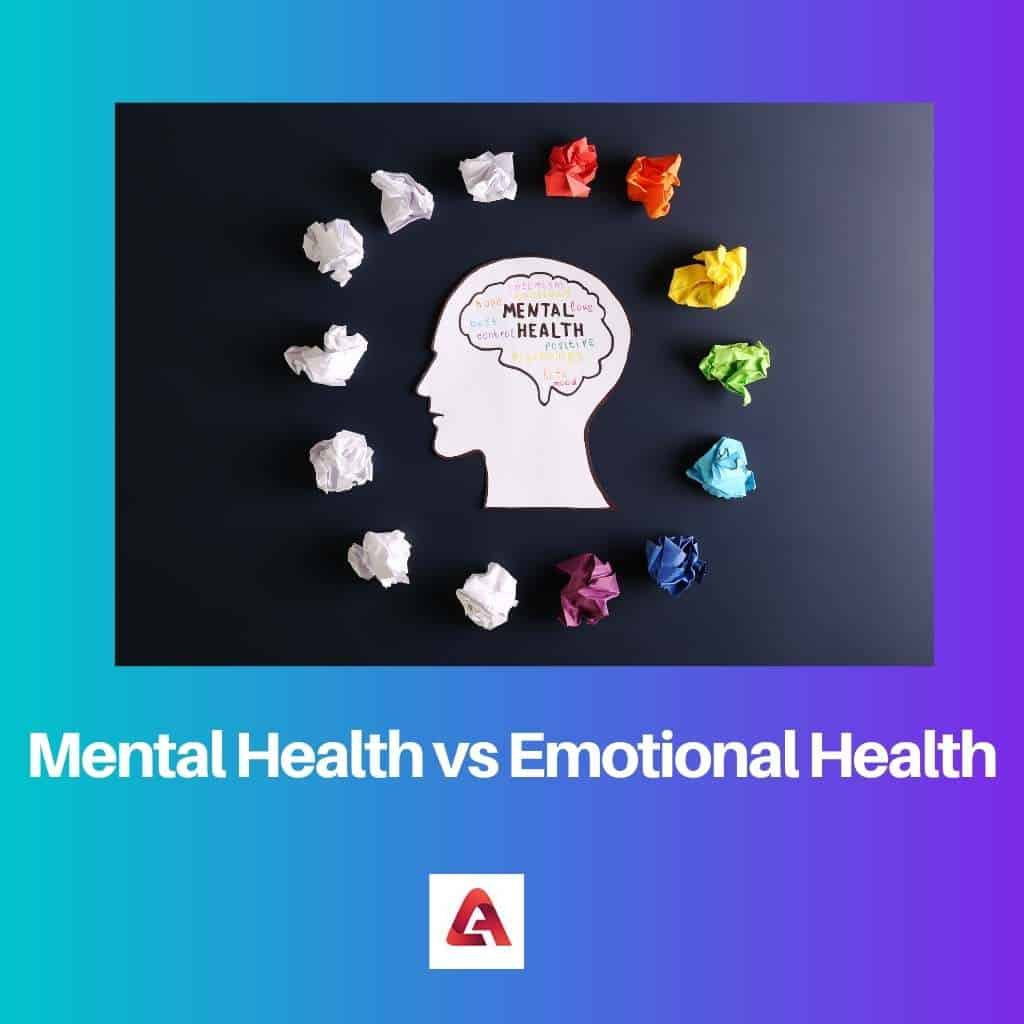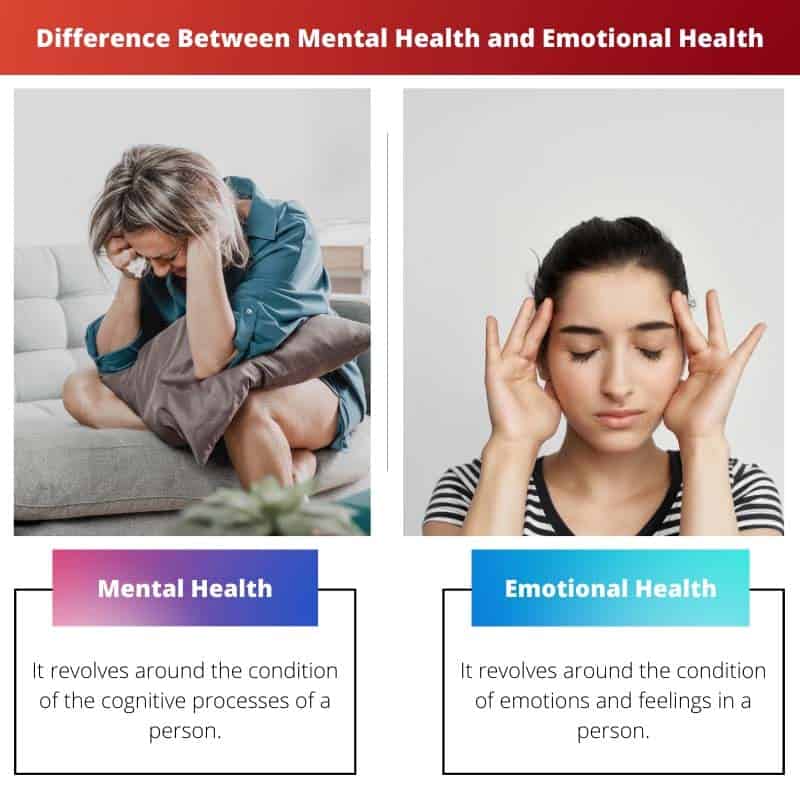The condition of a person’s mental and emotional health has various effects on many other aspects of life. Therefore, it is necessary to care for each of them.
This plays an important role in overall well-being. Many a time, mental and emotional health are confused with being the same thing. However, they are different and certainly not interchangeable.
Key Takeaways
- Mental health refers to a person’s overall psychological well-being, including their ability to cope with stress and emotional challenges.
- Emotional health refers to a person’s ability to express and manage emotions healthily.
- Mental health includes emotional health and other aspects such as cognitive functioning and social relationships.
Mental Health vs Emotional Health
Mental health is influenced by genetics, environment, and life experiences and can range from mild anxiety to more severe conditions. Emotional health is the ability to recognize one’s own emotions. It is closely related to mental health, as it is influenced by genetics and life experiences.

Mental health is all about the condition of a person’s mind. This is influenced by a plethora of factors, some of which include assessment capabilities, competition, and even cultural differences.
When a person experiences these things, their mental health plays a role in how well they are able to cope. Meanwhile, emotional health is more related to feelings.
It is largely influenced by economic, demographic, and even situational factors. Having a good emotional health condition means that a person has self-esteem, is able to cope with adverse situations, and shows productivity at work in the long run.
It ultimately leads to a better quality of life.
Comparison Table
| Parameters of Comparison | Mental Health | Emotional Health |
|---|---|---|
| Meaning | It revolves around the condition of the cognitive processes of a person. | It revolves around the condition of emotions and feelings in a person. |
| Influencing factors | It is largely influenced by assessment capabilities, competition, cultural differences, etc. | It is largely influenced by economic, social, demographic, and situational factors. |
| Positive Impact | Good mental health allows a person to be focused, productive, competent, efficient, and independent. | Good emotional health allows a person to feel motivated, optimistic, cheerful, confident, and expressive. |
| Negative Impact | Bad mental health can lead to several mental disorders and negative behaviours. | Bad emotional health can lead to constant sadness, worry, anger, anxiety, and even depression. |
| Scope | The scope of mental health is wide. | The scope of emotional health is limited. |
What is Mental Health?
Throughout history, mental health was not always looked at with the right perspective. In the 1700s, for example, American mental disorder patients were confined in inhuman spaces and were given religious punishment.
However, the stigma around mental health does not exist anymore. Nowadays, mental health is treated as an important aspect of quality life. Mental health is not considered to be just the absence of any illness or disease.
It is something to be taken care of constantly. The concept essentially revolves around a person’s cognitive abilities and how well the mind is treated.
Numerous factors can influence the condition of a person’s mental health. Some of them include assessment capabilities, competition, cultural differences, etc.
If these situations do not turn out well for a person, he is likely to show negative effects that affect his overall health. When the mental health condition of a person is good, it allows him to be focused, productive, competent, efficient, and independent.
However, when the mental health condition is bad or not taken care of at all, it can lead to mental disorders and adverse behaviours.
However, the scope of mental health is very wide, which means that it includes numerous aspects that can be difficult to understand.

What is Emotional Health?
Emotional health is more about how the condition of a person’s feelings. It involves the ability to cope and even express certain feelings that arise from various situations.
The term is relatively newer as compared to mental health. However, it is known to be widely accepted by psychologists and health professionals across the world.
A variety of factors can influence a person’s emotional health. Some of them can be categorized as economic, social, demographic, and even situational.
When a person’s emotional health is in good condition, it allows him to feel motivated, optimistic, cheerful, confident, and expressive.
However, when a person’s emotional health is bad, it can lead to constant sadness, worry, anger, anxiety, and even depression. Mental and physical health is also related to emotional health.
This means that if a person cannot process and cope with emotions, he may also lead to a decline in the condition of his mind and body.
Regardless, the scope of emotional health is not as wide as mental health. This means that it can easily be understood and diagnosed. Even correcting it and taking care of it is much easier than taking care of mental health.

Main Differences Between Mental Health and Emotional Health
- Mental health revolves around the condition of a person’s cognitive processes, whereas emotional health revolves around the condition of emotions and feelings in a person.
- Mental health is influenced by assessment capabilities, competition, cultural differences, etc., whereas emotional health is influenced by economic, social, demographic, and situational factors.
- Good mental health allows a person to be focused, productive, competent, efficient, and independent, whereas good emotional health allows a person to feel motivated, optimistic, cheerful, confident, and expressive.
- Bad mental health can lead to several mental disorders and negative behaviours, whereas bad emotional health can lead to constant sadness, worry, anger, anxiety, and even depression.
- The scope of mental health is wide, whereas the scope of emotional health is limited.




